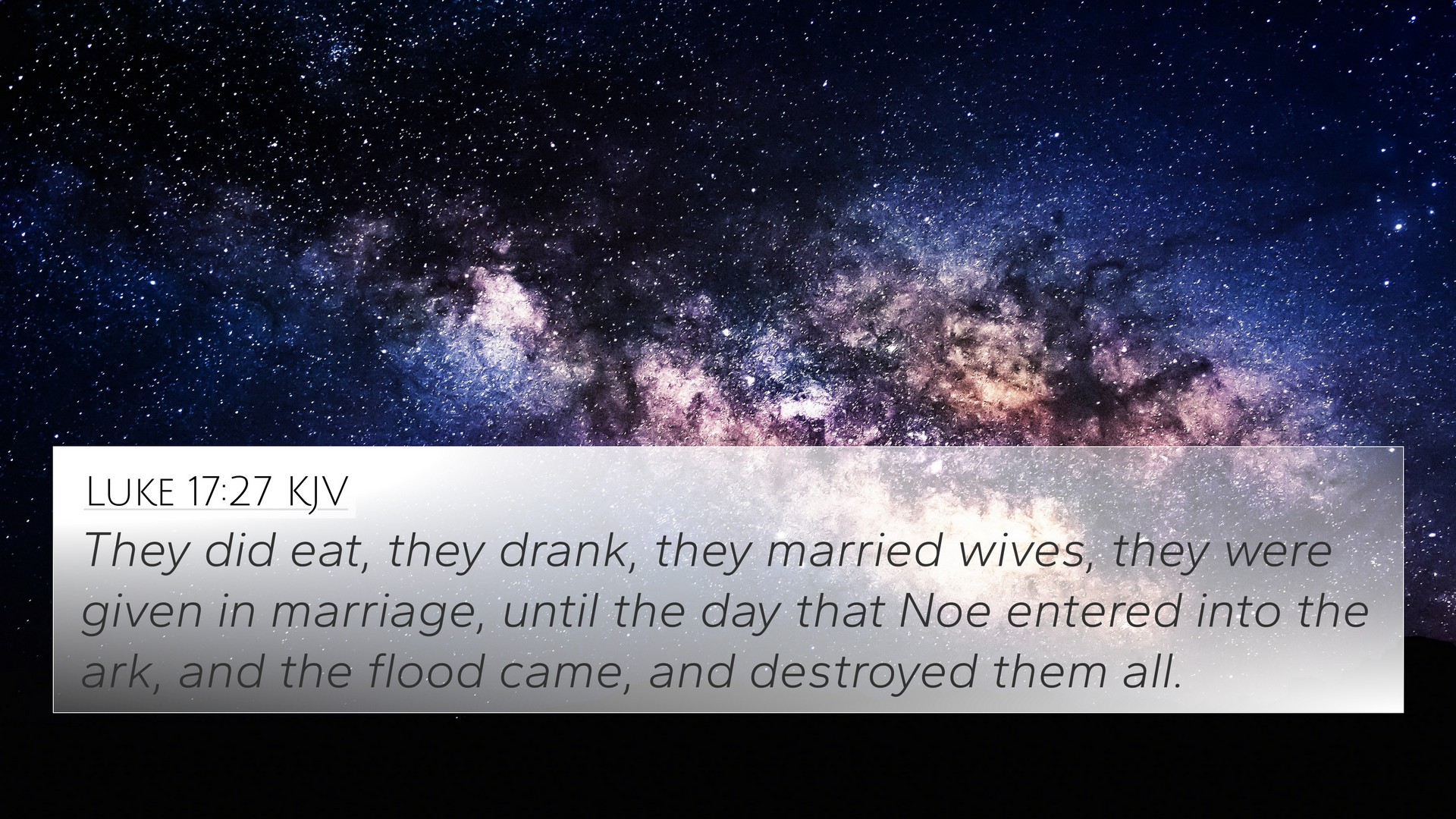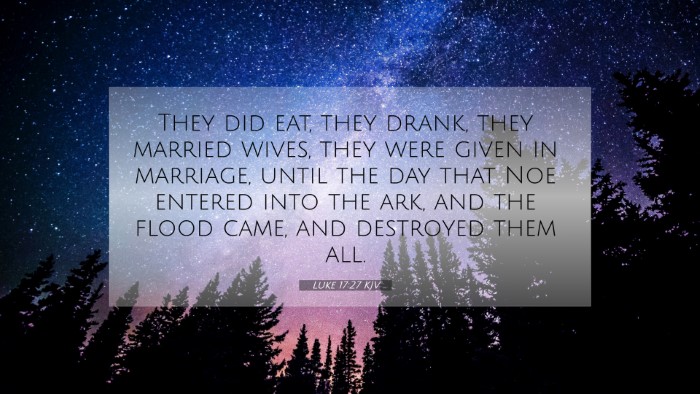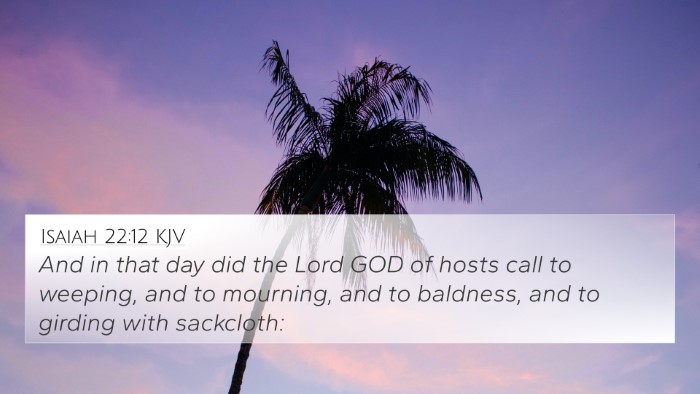Understanding Luke 17:27
Luke 17:27 states: "They ate, they drank, they married, and were given in marriage until the day that Noah entered into the ark, and the flood came and destroyed them all." This verse serves as a crucial reminder of the need for readiness and awareness of God’s judgment.
Verse Meaning Summary
This passage draws a powerful parallel between the days of Noah and the anticipated coming of the Son of Man. The behavior of humanity before the flood exemplifies complacency and a disregard for divine warnings. In this summary, we combine insights from several public domain commentaries, including those of Matthew Henry, Albert Barnes, and Adam Clarke, to elaborate on the deeper meanings embedded within this verse.
Key Themes Identified
-
Complacency in Daily Life:
Matthew Henry emphasizes the unawareness of the people in Noah's time. They were immersed in everyday activities such as eating and drinking, which metaphorically illustrates how the mundane can distract from spiritual truths.
-
Divine Judgment:
Albert Barnes connects the flood as a representation of God's judgment upon an unrighteous generation. It serves as a foreshadow of future judgment upon those who live without regard for God.
-
Preparation for the Coming of Christ:
Adam Clarke notes that just as Noah prepared the ark, believers today must also prepare themselves spiritually for the return of Christ. This preparedness is highlighted in the urgency of the message.
Connecting this Verse to Other Scripture
Understanding Luke 17:27 is enriched through various Bible verses that share similar themes and warnings. Here are 7 Bible cross-references that relate strongly to this verse:
-
Genesis 6:5-8:
The description of mankind's wickedness in Noah's time lays the groundwork for the flood narrative, establishing the context of divine judgment.
-
Matthew 24:38-39:
Jesus reiterates the same message regarding the unexpectedness of His coming, paralleling the days of Noah where people were unaware of the impending doom.
-
1 Peter 3:20:
This passage speaks directly about those who were disobedient during Noah's time and emphasizes the consequences of disregard for God’s warning.
-
2 Peter 2:5:
This verse refers to Noah as a 'preacher of righteousness,' emphasizing his role in calling people to repentance prior to the flood.
-
Revelation 3:3:
This warns the church to be vigilant and not to become complacent, much like the people in Noah's time were before the flood.
-
Hebrews 11:7:
This highlights Abraham's faith in building the ark, showing that faith precedes judgment, calling believers to heed God's warnings.
-
Luke 12:40:
This verse warns believers to be ready, just as Noah was prepared, reinforcing the theme of imminent judgment.
Practical Implications of Luke 17:27
This verse challenges believers to evaluate their daily lives in light of eternal truths. The call to be vigilant and spiritually prepared is essential, echoing the urgency present in Noah's warning during those days.
Further insights from Matthew Henry emphasize that life should not be an excuse for neglecting one's responsibilities toward God. It is vital to cultivate a consistent spiritual practice to avoid the trap of complacency that led to destruction in Noah's time.
Examining the Consequences of Ignoring the Message
Ignoring the message of Luke 17:27 can have dire consequences, as illustrated by the flood that swept away those who were engrossed in worldly pursuits. Albert Barnes draws attention to the significance of being aware of God's impending judgment and not allowing worldly distractions to lead one astray.
Conclusion
Luke 17:27 serves as a sobering reminder of the need to remain vigilant and spiritually prepared amid life's distractions. By cross-referencing this verse with other scriptures, believers can gain a fuller understanding of God's expectations and the reality of His judgment.
The interconnectedness of the Bible’s message through thematic linkages encourages a deeper study of scripture, providing tools for a robust biblical faith and a preparation for Christ's return.











